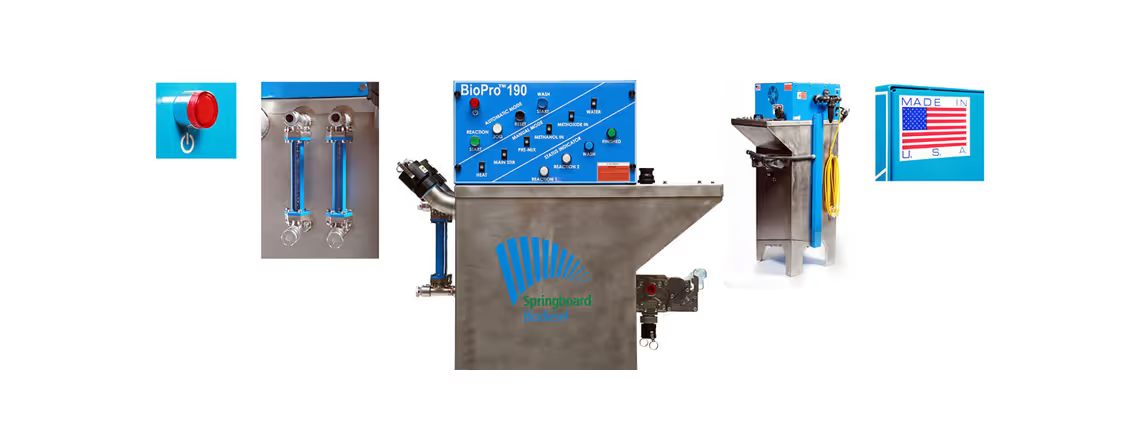I wonder if, when you are pumping fuel at a gas station, you ever experience angst of the existential variety? Perhaps this unpleasant feeling, one that involves helplessness and a little bit of fear, sometimes results in angry fulminations against ...the man. The man in this instance being the corporate forces that control the price of fuel, that you have no control over, and to whom you are beholden if you want to get from A to B in your petroleum-dependent vehicle.
If you’ve ever felt this way, please read on.
We argue to those of you with diesel engines: there is no other industry on the planet better suited to empower you against fuel-rage frustration than the small-scale biodiesel industry.
Why?
If you have access to used cooking oil – because you feed people or you know someone who does – you are in the unusually fortunate position of being able to put that oil into an appliance which will automatically convert it into a government approved diesel replacement fuel for $1.15 per gallon (not a typo).
As diesel engine drivers out there know all too well, it’s painful at the pump. $6.19/gal in Northern California today. So, if you can collect that used cooking oil for free, you will be saving more than $5 per gallon.
This device, The BioPro 380EX, makes 100 gallons of biodiesel every day. It costs $26K and every time you turn it on, in California, you will save $500 per day in fuel costs. The machine performs a dual chemical reaction, using common and inexpensive chemicals to convert the oils of choice into ASTM-grade biodiesel fuel.
For 15 years, our customers have been using these appliances, which come in multiple sizes and configurations, to convert these waste oils, including animal fats, and long list of non-food grade seed oils, into the highest grade biodiesel, automatically.
"Load it up, turn it on, walk away." That is our mantra.
A list of notable groups we’ve worked with includes the US military, The Florida National Guard, 101 different school systems, The Federal Prison system, casinos and resorts and a long list of restaurant owners who are fed up with the price at the pump and want to do something better.
If the reduced cost savings don’t grab you, perhaps the fact that biodiesel is considered by CARB* (California Air Resources Board) to be the least carbon emissive fuel of all the liquid fuels, will tip the scales.
According to studies done by the EPA, biodiesel made from farmed seed oils, like soybean, emits 75% less CO2 and 50% less particulate matter, in its lifecycle of production and use, than regular diesel fuel. This CO2 reduction is even higher, around 88%, when used cooking oils are converted.
Biodiesel mixes beautifully with diesel or renewable diesel (the latter becoming popular in California today) at any ratio, so you are not committed to one fuel or the other and there is no reason to experience “range anxiety”. If you make this fuel, you are simply giving yourself more and cheaper and cleaner options.
“Do I need to convert my engine to run on biodiesel”. YOU DO NOT.
If you would like to further explore this opportunity, we recommend you take a deep dive into our website or that of the Cleanfuels.org or the US Dept of Energy and do your own research. Happy to chat if you have questions (call us at +1-530-894-1793).
And regarding that feeling of angst. There is nothing like driving past the local fuel station, making an upwards, derogatory hand gesture at the petroleum company’s sign on display, as you drive by and don’t stop. That feeling, one of triumph over angst, is difficult to assign a value to.
* Men and women in white lab coats paid by the state of California to gather and verify empirical information on the emissions profiles of fuels.













.svg)
